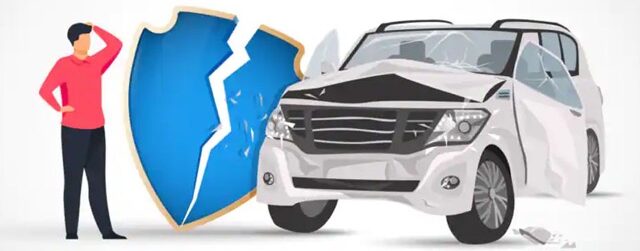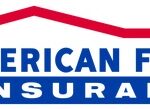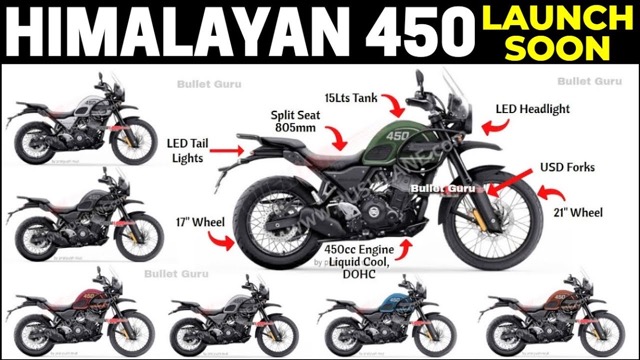Totaled Car Insurance 2024 After experiencing a car accident, the insurance company worsens the situation by declaring your car totaled. You only have the chance to retrieve your personal belongings before it’s taken away. However, having the appropriate car insurance can help you move past the accident and back onto the road. Total loss in car insurance is declared when a vehicle is damaged to such an extent that the cost of repair is higher than the vehicle’s total IDV. Generally, the total loss is declared when the repair cost of the damaged vehicle exceeds 75% of the vehicle’s IDV.
Outlines Of Guide
ToggleTotaled Car Definition
When a car is considered totaled, it means that the expense of repairing the vehicle surpasses or is nearly equal to its total value. If your car is declared totaled by the insurance company, you will be compensated for the assessed value of the car, minus the deductible stated in your policy. For example, if your car is valued at $5,000 and you have a $500 deductible, the insurance company will pay you $4,500.
When Is a Car Considered Totaled?
The criteria used to determine whether a car is considered “totaled” can differ from state to state. There are typically two methods used to calculate the total loss of a vehicle. The first method is to compare the cost of repairs with the actual cash value (ACV) of the car. If the cost of repairs exceeds a certain percentage of the ACV, then the car is considered totaled. The second method involves assessing the cost of repairs against a predetermined dollar amount set by the insurance company. If repairs exceed this amount, then the vehicle is declared a total loss. It’s important to note that even if a car isn’t considered totaled, it may still have significant damage that affects its safety and resale value.
Total loss threshold
When the expense of fixing a car exceeds the specified percentage of the car’s actual cash value, it is deemed a total loss. The majority of states with a total loss formula typically set the percentage within the range of 70% to 80%.
Total loss formula (TLF)
In states that do not have a predetermined threshold, car insurance companies typically use a formula to determine whether a vehicle is a total loss. The formula takes into account the cost of repair and the salvage value of the vehicle, which must be greater than or equal to the actual cash value (ACV) of the car. If the cost of repair and salvage value exceed the ACV, then the insurance company will declare the vehicle a total loss and offer a payout to the policyholder. It is important for car owners to understand their state’s laws regarding total loss thresholds and to review their policy carefully before making a claim.
Total Loss Laws
| State | When is a car totaled? |
|---|---|
| Alabama | A total loss shall occur when an insurance company or any other person pays or makes other monetary settlement to a person when a vehicle is damaged and the damage to the vehicle is greater than or equal to 75% of the fair retail value of the vehicle prior to damage as set forth in a current edition of a nationally recognized compilation of retail values. |
| Alaska | Alaska uses a total loss formula that says vehicles are totaled when repair costs exceed the vehicle’s value. |
| Arizona | Arizona uses a total loss formula that says insurance companies can decide if a vehicle is totaled. |
| Arkansas | A vehicle is considered totaled when there’s damage in an amount equal to or exceeding 70% of its average retail value. |
| California | California uses a total loss formula that says a vehicle is totaled when it’s “uneconomical to repair.” |
| Colorado | Colorado uses 100% of vehicle value as the threshold for totaling. State law says a vehicle is totaled when the “cost of repairing the vehicle to a roadworthy condition and for legal operation on the highways exceeds the vehicle’s retail fair market value immediately prior to the damage.” |
| Connecticut | Connecticut uses a total loss formula. To calculate a vehicle’s value auto insurers must use at least the average of the car’s retail value from (1) NADA or another industry source that has been approved for such use by the state’s insurance commissioner and (2) one other automobile industry source that has been approved. |
| Delaware | Delaware’s total loss formula says insurance companies can decide when a vehicle is totaled. |
| A vehicle is totaled when repairs exceed 75% of the vehicle’s retail value prior to the accident. | |
| Florida | An insurance company can declare a vehicle is a total loss when repairs exceed 80% of its value. State law says a vehicle must be totaled when repairs exceed 100% of value. |
| Georgia | Georgia uses a total loss formula that says a vehicle is totaled when it is “damaged to the extent that its restoration to an operable condition would require the replacement of two or more major component parts.” |
| Hawaii | Hawaii’s total loss formula says an auto insurance company can decide if a vehicle is totaled. |
| Idaho | Idaho uses a total loss formula and gives a vehicle a salvage title if “the cost of parts and labor minus the salvage value makes it uneconomical to repair or rebuild.” |
| Illinois | Illinois has a total loss formula that says an insurance company can decide a vehicle is a total loss, or when repairs are more than 70% of the vehicle’s fair market value. |
| Indiana | A car is totaled in Indiana when damage exceeds 70% of its value. |
| Iowa | A car is totaled in Iowa when damage exceeds 50% of its value. |
| Kansas | A car is totaled in Kansas when damage exceeds 75% of its value. |
| Kentucky | A car is totaled in Kentucky when damage exceeds 75% of its retail value from the NADA price guide. |
| Louisiana | A car is totaled in Louisiana when damage exceeds 75% of its retail value from the NADA price guide. |
| Maine | Maine uses a total loss formula that says vehicles are totaled when there’s “evidence that a vehicle was declared a total loss by an owner or an insurance company.” |
| Maryland | A car is totaled in Louisiana when damage exceeds 75% of its fair market value. |
| Massachusetts | Under the Massachusetts total loss formula, an auto insurance company decides if a vehicle is totaled. |
| Michigan | A car is totaled in Michigan when damage exceeds 75% of its pre-damaged actual cash value. |
| Minnesota | A late-model or high-value car is totaled in Minnesota when damage exceeds 80% of its actual cash value. |
| Mississippi | Mississippi uses a total loss formula and says insurers can’t total cars that are 10 years old or older, or with a value of $1,500.00 or less, or to vehicles with damage that requires the replacement of five or fewer minor components. |
| Missouri | A car is totaled in Michigan when damage exceeds 80% of its fair market value and the vehicle is no more than six years old, based on the manufacturer’s model year. |
| Montana | Montana’s total loss formula says insurers can decide when to total vehicles. |
| Nebraska | A car is totaled in Nebraska when damage exceeds 75% of its retail value and the vehicle is no more than six years old. |
| Nevada | A car is totaled in Nevada when damage exceeds 65% of its fair market value. |
| New Hampshire | A car is totaled in New Hampshire when damage exceeds 75% of its fair market value or that an insurer decides is “physically or economically impractical to repair” for a claim settlement.. |
| New Jersey | New Jersey’s total loss formula says that an insurer can decide that a vehicle is “economically impractical” to repair. |
| New Mexico | New Mexico’s total loss formula says that an insurer can decide that a vehicle is “uneconomical to repair.” |
| New York | A car is totaled in New York when damage exceeds 75% of its actual cash value. |
| North Carolina | A car is totaled in North Carolina when damage exceeds 75% of its fair market value. |
| North Dakota | A car is totaled in North Dakota when damage exceeds 75% of its fair market value, based on the NADA price guide. |
| Ohio | Ohio’s total loss formula says that an insurer can decide that a vehicle is “economically impractical” to repair. |
| Oklahoma | A car is totaled in Oklahoma when damage exceeds 60% of its fair market value. |
| Oregon | A car is totaled in Oregon when damage exceeds 80% of its retail market value. |
| Pennsylvania | Pennsylvania’s total loss formula says a vehicle is totaled when “the cost of repairs would exceed the value of the repaired vehicle.” |
| Rhode Island | Rhode Island’s total loss formula says an auto insurance company can decide when a vehicle is a total loss. |
| South Carolina | A car is totaled in South Carolina when damage exceeds 75% of its fair market value. |
| South Dakota | South Dakota’s total loss formula says that an insurer can decide that a vehicle is a total loss, as long as it’s less than 10 model years old. |
| Tennessee | A car is totaled in Tennessee when damage exceeds 75% of its fair market value. |
| Texas | A car is totaled in Texas when damage exceeds 100% of its actual cash value. |
| Utah | Utah’s total loss formula says an insurance company can decide when a car is totaled. |
| Vermont | Vermont’s total loss formula says an insurance company can decide when a car is totaled. |
| Virginia | A car is totaled in Virginia when damage exceeds 75% of its actual cash value. |
| Washington | Washington’s total loss formula says an insurance company can decide when a vehicle is “uneconomical to repair.” |
| West Virginia | A car is totaled in West Virginia when damage exceeds 75% of its market value. |
| Wisconsin | A car is totaled in Wisconsin when damage exceeds 70% of its market value. |
| Wyoming | A car is totaled in Wyoming when damage exceeds 75% of its retail cash value. |
How Does an Insurance Company Determine the Value of a Totaled Car?
Certain states require the use of NADA to establish the worth of a vehicle, while others rely on the latest edition of a nationally recognized collection of values, which encompasses databases, to determine the value of a car.
The factors used to determine a totaled car’s value include:
- Make, model and year
- Mileage
- Pre-loss condition
- Sales price of similar cars in your area
- Salvage value (resale value of parts and metal)
Auto Insurance for Totaled Cars
If you have a totaled car, there are several optional auto insurance coverage types that can be of assistance. One of the most common types is collision coverage, which pays for damages to your vehicle in the event of an accident. Another type is comprehensive coverage, which covers losses from events like theft, fire, or natural disasters. Gap insurance is also an option that covers the difference between what you owe on your car and its actual cash value if it’s totaled. It’s essential to review your policy carefully and understand the terms and conditions of each coverage type to make an informed decision about what options suit your needs.
Collision and comprehensive insurance
Collision and comprehensive insurance are often sold together and cover a Your vehicle could be affected by a variety of issues that might result in it being declared a total loss, such as car accidents, theft, vandalism, floods, fire, severe weather, collisions with animals, and objects falling on it. If the cause of the total loss is covered by your collision or comprehensive insurance, you have the option to submit a claim to your insurer. Upon approval, you will receive a settlement check (after deducting your deductible) that can be used for purchasing a replacement car. If you have an auto loan or lease, the lender or leasing company will likely mandate that you have collision and comprehensive coverage.
Gap insurance
If your car is totaled due to a problem covered by your policy and you owe more on your car loan or lease than the settlement amount, gap insurance will cover the “gap” between the two. To be eligible for gap insurance, you must have collision and comprehensive insurance. Gap insurance can usually be purchased from your car insurance provider, car dealerships, banks, credit unions, and companies like Gap Direct offer standalone policies.
Here’s an example of how gap insurance works:
You had a loan of $25,000 for your car, which was valued at $22,000 when it was totaled. After deducting $500, you received a settlement check for $21,500, leaving you with a remaining debt of $3,500 to your lender. Gap insurance will take care of this remaining amount.
New car replacement insurance
New car replacement insurance provides payment for a new vehicle of comparable make and model (minus your deductible) in the event of a covered accident resulting in total loss. This is preferable to receiving a reimbursement based on the vehicle’s value at the time of the loss. To be eligible for new car replacement coverage, you must have collision and comprehensive insurance, and your vehicle must meet the insurer’s age and mileage criteria. Generally, new car replacement coverage cannot be combined with gap insurance.
Here’s an example of how new car replacement works:
After buying a new car for $30,000, its value depreciates to $26,000 after a few months, and it gets totaled by a flood. The new car replacement coverage will cover the cost of a new car with a similar make and model, not the depreciated value of $26,000.
Rental reimbursement auto insurance
Rental reimbursement insurance provides coverage for rental car expenses or alternative transportation costs, such as subway and bus passes, if your car is rendered inoperable due to a covered issue in your policy. This coverage can be added to your policy if you have collision and comprehensive insurance, and it can be quite valuable as the total loss process often takes longer than a standard fender bender insurance claim.
Uninsured motorist coverage
If you lack collision insurance, uninsured motorist coverage may be utilized. In states where it is offered, uninsured motorist property damage (UMPD) can cover the costs if an uninsured driver wrecks your vehicle. However, UMPD might not be enough as it will only pay up to the specified limit in your policy. For instance, if your policy limit is $25,000 but your car is valued at $30,000, you will only receive $25,000, leaving a $5,000 deficit. To prevent this issue, it is advisable to purchase collision insurance if your car’s value exceeds your UMPD limit.
What Happens if Your Car Is Totaled?
The insurance company will generally provide a settlement amount calculated according to the car’s value in the event of your vehicle being totaled. If you’re filing a claim under your collision or comprehensive insurance, your deductible will be deducted from the insurance payment. Here’s a scenario illustrating how an insurance claim for a totaled car could unfold:
- You get into a car accident and file a claim under the collision insurance portion of your car insurance policy.
- A claims adjuster inspects the vehicle and deems it a total loss based on your state’s total loss method.
- Your insurance company makes a settlement offer based on your car’s value, minus your collision insurance deductible amount.
- If you have a loan or lease, a settlement check will go to your lender or leasing company for the balance remaining.
- If you do not have a loan or lease, you will receive the settlement check.
How Much Does Insurance Pay for a Totaled Car?
A car insurance provider compensates for the estimated pre-accident value of the vehicle minus the deductible. The assessment considers factors such as the vehicle’s make, model, mileage, local sales prices of similar cars, pre-accident condition, and salvage value. For example, if the vehicle was valued at $10,000 before the accident, two scenarios are presented:
You’re making a claim on your own collision or comprehensive insurance If you have a $500 deductible, the company will subtract this amount from the $10,000 and give you $9,500. If your car is financed, the lender will receive the payment for the amount you still owe on the vehicle.
Someone else was at fault for the accident If you file a claim against them, their insurance company will compensate you with $10,000, and there is no deductible when claiming against someone else’s insurance.
Do I have to accept an insurer’s settlement offer on a totaled vehicle?
Before pursuing this option, ensure you have supporting documentation if you wish to negotiate for a better settlement with your insurance company.
- A list of your car’s features.
- The estimated retail value from sources such as NADA.
- Comparable sales for vehicles of similar year, make and model in your area
If you want to negotiate a totaled vehicle settlement, research the vehicle’s value, including recent sales, so you have supporting documentation.
Other Options for Dealing With a Total Loss Car
Keep your totaled car
Depending on the regulations in your state, it may be possible to retain ownership of a totaled car. Some states have provisions for “owner-retained salvage,” which means that you can keep the vehicle, but it will receive a salvage title. To make the car roadworthy again, you will need to adhere to your state’s repair guidelines. This usually involves repairing and restoring the vehicle and then having it inspected by the state to ensure it meets safety standards. If the car passes the inspection, it will receive a “rebuilt title.” However, obtaining auto insurance for a car with a rebuilt title may be challenging, as insurance companies consider them to be higher risk and may limit coverage options or refuse to provide coverage altogether.
Sell the vehicle to a junkyard
To sell a totaled car to a junkyard, you must have the vehicle’s title and proof of ownership. It’s advisable to compare offers from different junkyards to determine the best price for your vehicle. The amount offered will depend on the car’s make, model, and extent of damage. Additionally, it may be necessary to inform your state about the sale to protect yourself in case the vehicle is involved in an accident after the sale.
Give the vehicle to a charity
Donating a salvage title vehicle to a charity can be an excellent way to support a good cause while also receiving a tax deduction. In some cases, charities may even offer to tow the vehicle away at no cost to you. However, it is important to note that not all charities accept salvage title vehicles, and those that do may have specific requirements or restrictions. Before making a donation, it is essential to research the charity thoroughly, ensure their legitimacy, and understand the process for donating a salvage title vehicle.
Do I still have to pay my loan or lease on a totaled car?
In the event that your vehicle is completely damaged due to a covered issue under your collision and comprehensive insurance (such as a car accident), your lender or leasing agent will receive an insurance payment equivalent to your car’s actual cash value (ACV). If the ACV is lower than the amount you still owe on your loan or lease, you are still responsible for paying the remaining balance to your lender or leasing company.
What happens if your car is totaled and you’re not at fault?
In the event of a collision with another driver resulting in the total loss of your vehicle, you have the option to make a claim against their car liability insurance. Alternatively, you can choose to file a claim through your own collision insurance to avoid dealing with the other driver’s insurance company. For accidents involving total car loss where no other drivers are at fault, such as due to fallen trees, floods, or fires, you can file a claim through the comprehensive coverage of your insurance policy.
Summary of Totaled Car Insurance 2024
Navigating the process of dealing with a totaled car can be overwhelming, but having the right insurance coverage can provide you with peace of mind and financial protection. In this blog, we have covered everything you need to know about totaled car insurance, including how it works, what is covered, and how to file a claim. Remember to review your policy carefully and consult with your insurance provider to ensure you have the appropriate coverage in place. By understanding the ins and outs of totaled car insurance, you can make informed decisions and protect yourself from unexpected expenses in the event of an accident.











































